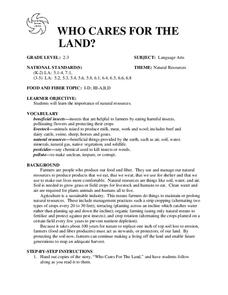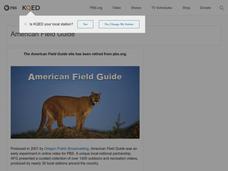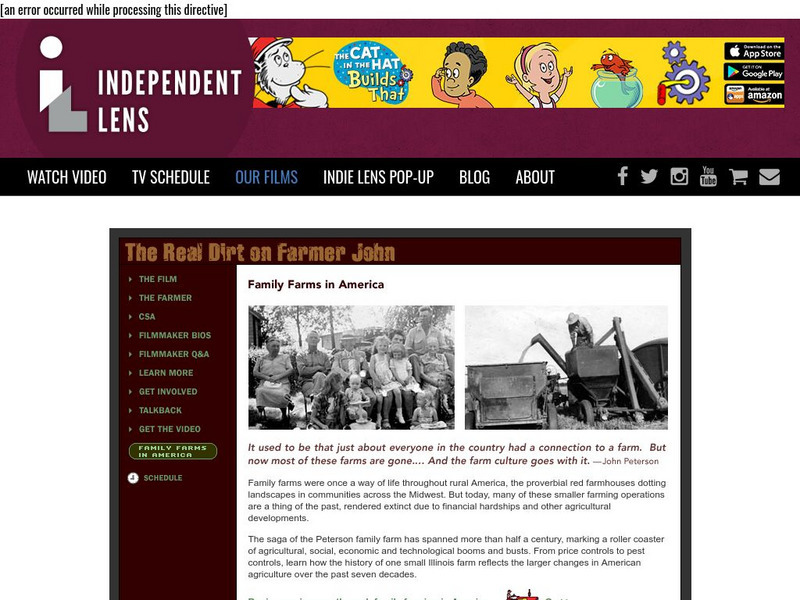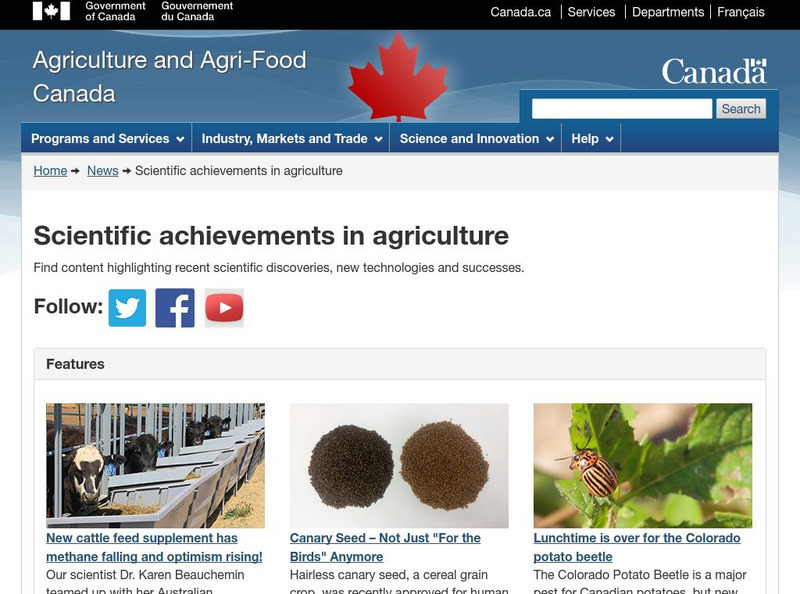Curated OER
WHO CARES FOR THE LAND?
Students explore the importance of natural resources. They are given copies of the story, "Who Cares For The Land," and students follow
along as the teacher reads it. Students identify the key points in the story. (Soil, water and air...
Curated OER
What is Cacao?
Young scholars use the Internet to learn about the cacao plant. In this plants lesson plan, students complete a KWL chart on chocolate, learn about cocoa plants and discuss the parts of a plant. Young scholars use the...
Curated OER
Flowers and Plants
Young scholars are assigned to bring five flowers. They explore flowers to distinguish different physical features of flowers. They compare and contrast different flowers to determine what features they have in common. Students...
Curated OER
Labor Unions and Strikes
Teens explore economics by listening to a labor history lecture and an excerpt from Looking Backward, by Edward Bellamy. A detailed outline is provided for the lecture, along with follow up and assessment questions. In groups, they...
Curated OER
Learning About Composting
Students can create a compost pile to learn about the decomposition process.
Curated OER
How Big is Your Footprint?
Students create awareness for ways in which the "Western" lifestyle negatively impacts the Earth. They create awareness for alternatives to our current ways of living, eating and traveling. Students are challenged to talk with their...
Curated OER
The Dirt We Depend On; Soil Destruction and Conservation Reading Comprehension Worksheet
In this soil destruction and conservation worksheet, students read a three page non-fiction article. They answer 10 fill in the blank questions and 1 short answer question based on the reading about soil building methods.
Curated OER
HAPPY SOIL, SAD SOIL
Young scholars will be able to identify the characteristics of healthy soil and unhealthy soil.Take the class outside to an area of thick grass near trees, if available. Compare the
clothes people wear to the thin cover. Discuss the...
Curated OER
Earth Day Crossword Puzzle-- Difficult
In this science worksheet, students participate in an Earth Day activity by completing a crossword puzzle. Students read each clue. The answer which fits in the puzzle is provided in a scrambled word form. Students unscramble the words...
Curated OER
Water Pollution
Students explore the causes of water pollution. In this environmental lesson, students conduct experiments with natural filtration systems.
Curated OER
West Virginia: Reading Comprehension
For this West Virginia reading comprehension worksheet, students read a 2-page selection regarding the state and then respond to 10 true or false questions
Curated OER
Where to shop?
Students study a topic of an environmental nature that is relevant to them (as individuals) on a local level, but with global implications. They consider whether their family's shopping habits have any lasting effects on the environment.
Curated OER
Would You Drink This?
Students examine how they affect water quality of those who live downstream after identifying rivers and river basins in Kansas.
Curated OER
A River Mosaic#136
Students determine the meaning of culture as it applies to groups of people. They examine how immigration changes the cultural attribute of a geographic location. They design a Big Book that describes cultural mosaics.
Other
Do Something: 11 Facts About Organic Food
Learn about the differences between conventionally grown food and organic for both people and the environment. Includes important statistics about nutrition and pesticides.
Other
Grace Communications: Food Print
An environmentally conscious group brings to light the relationship between food, water and energy, and the importance of sustainability. The site looks at issues such as animal welfare, social justices, food policy, the industrial food...
Environduck
Enviroduck: Greener Food Go Green With Organic and Local Food
Conserve by eating organic food and food that produced locally.
Smithsonian Institution
Environmental Research Center: Forces of Change: Listening to the Prairie
A large collection of lessons on prairie agriculture for Pre-K to Grade 12, organized into grade level groups. They cover such topics as foods that come from agriculture, animal farming, soils, and environmental issues. These lessons on...
Other
The Family Farmer
The Family Farm explores the diverse agricultural pursuits of farm families, and serves as a window into the small-scale food production process that modern day consumers have become estranged from.
PBS
Pbs Teachers: The Real Dirt on Farmer John: Family Farms in America
Trace the evolution in American agriculture with this interactive timeline. Learn how the history of one small Illinois farm reflects the larger changes, decade by decade.
Biotechnology Institute
Biotechnology Institute: Your World: A World of Change [Pdf]
The introduction of genetically modified organisms (animals, microbes, and plants) into agriculture has been accompanied by controversies over their potential impact on human health, the environment, and farming systems. Management of...
Countries and Their Cultures
Countries and Their Cultures: Edo
"Edo" is the name that the people of the Benin Kingdom give to themselves, their language, and their capital city and kingdom. Renowned for their art of brass and ivory and for their complex political organization, the Edo Kingdom of...
Other
Agri Food Trade Service: Agriculture, Food and Beverage Industry Tipsheets
Here's a collection of "fact sheets" offering details on Canada's various industries: Brewery, Dairy, Distillery, Fish and Seafood, Egg, Fruit, Grains and Oilseeds, Honey, Poultry, Red Meat, and more.


















